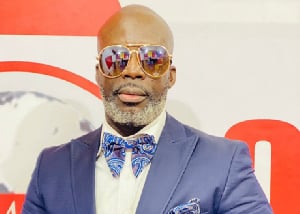Prophet Kumchacha, a well-known Ghanaian religious figure, has clarified his consistent absence from the Ghana Music Awards (GMA), an event considered a cornerstone of the Ghanaian music scene. His reasoning, articulated during a recent interview on Onua FM with Felicia Osei, provides a multi-faceted perspective on his non-attendance. Firstly, Prophet Kumchacha stated that he has never received a formal invitation to the prestigious award ceremony. This lack of invitation, he implies, is a significant factor behind his absence. It raises questions about the inclusivity of the event and the perceived disconnect between the religious and entertainment sectors in Ghana. The absence of an invitation, whether intentional or an oversight, suggests a potential gap in communication and engagement between the organizers of the GMA and influential figures like Prophet Kumchacha.
Beyond the absence of an invitation, Prophet Kumchacha pointed to scheduling conflicts as another contributing factor. His busy schedule, often filled with religious engagements and media appearances, leaves little room for attending events like the GMA. He specifically mentioned his participation in United Showbiz, a popular entertainment program, as an example of his commitments. This highlights the demanding nature of his public life and the prioritization he places on his religious and media obligations. It also underscores the potential difficulties faced by prominent figures in balancing their various commitments and selecting which events to attend. The choice between attending the GMA and fulfilling other obligations reflects the complexities of managing a public persona and the need for strategic decision-making.
Adding a personal dimension to his explanation, Prophet Kumchacha admitted to a general disinclination towards attending such events. He expressed a preference for following the GMA through social media platforms, allowing him to stay informed about the winners and highlights without the need for physical presence. This preference reveals a distinct approach to engaging with the entertainment industry, one that prioritizes information consumption over direct participation. It also suggests a potential disconnect between his personal interests and the social dynamics of large-scale entertainment events. His comfort with digital platforms as a means of staying connected to the music scene underscores the evolving relationship between traditional entertainment formats and the growing influence of social media.
Prophet Kumchacha’s preference for social media engagement reflects a broader trend in contemporary society, where digital platforms have become primary sources of information and entertainment. His comfort with this mode of engagement highlights the increasing accessibility and immediacy offered by social media, allowing individuals to curate their information intake and bypass traditional media channels. This preference for digital engagement also suggests a potential shift in how public figures interact with their audiences, utilizing online platforms to disseminate information and cultivate relationships.
The insights offered by Prophet Kumchacha into his non-attendance at the GMA provide a valuable perspective on the event’s reach and its relationship with diverse segments of Ghanaian society. His explanation, encompassing logistical, personal, and technological aspects, paints a picture of a complex interplay between individual preferences, social dynamics, and the evolving landscape of entertainment consumption. It raises questions about the inclusivity of events like the GMA and the potential for greater engagement with figures from different spheres of public life. The discussion also highlights the growing influence of social media in shaping public perception and providing alternative avenues for accessing information and entertainment.
Prophet Kumchacha’s perspective underscores the dynamic nature of the entertainment industry and the diverse ways in which individuals choose to engage with it. His explanation sheds light on the multifaceted considerations that influence attendance at major events and highlights the role of personal preference, scheduling constraints, and technological advancements in shaping individual choices. His comments also offer a glimpse into the evolving relationship between traditional entertainment formats and the growing dominance of digital platforms in shaping public discourse and information dissemination. The insights he provides contribute to a broader understanding of the Ghanaian entertainment landscape and the complex interplay between its various stakeholders.














